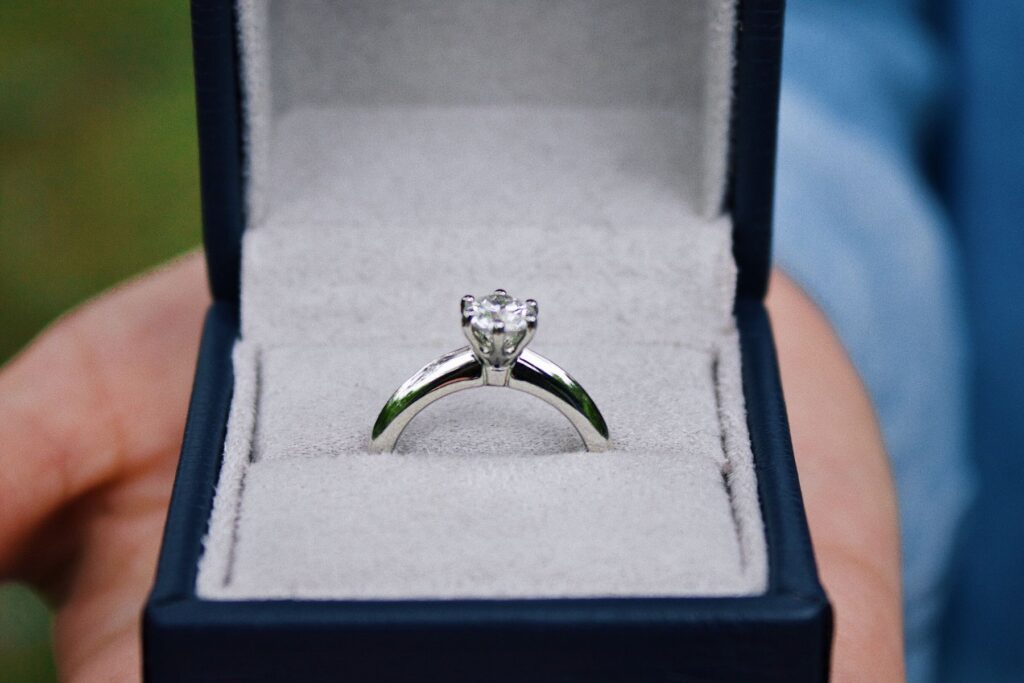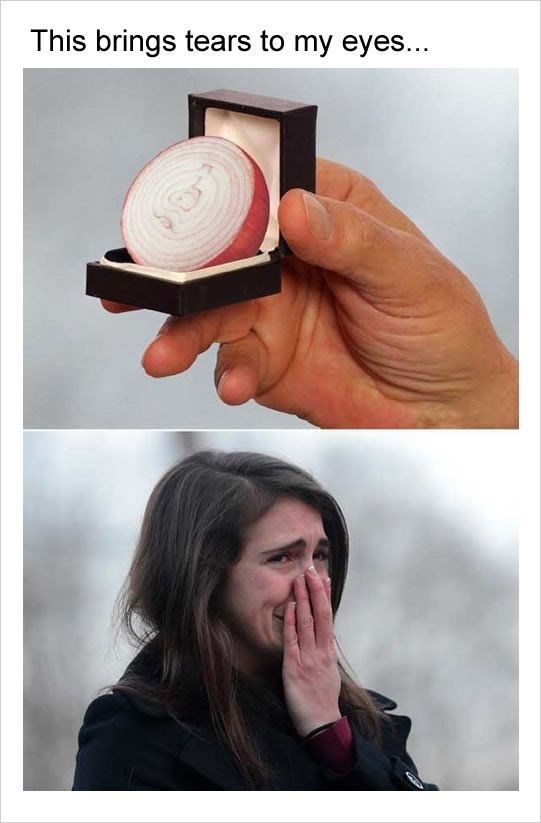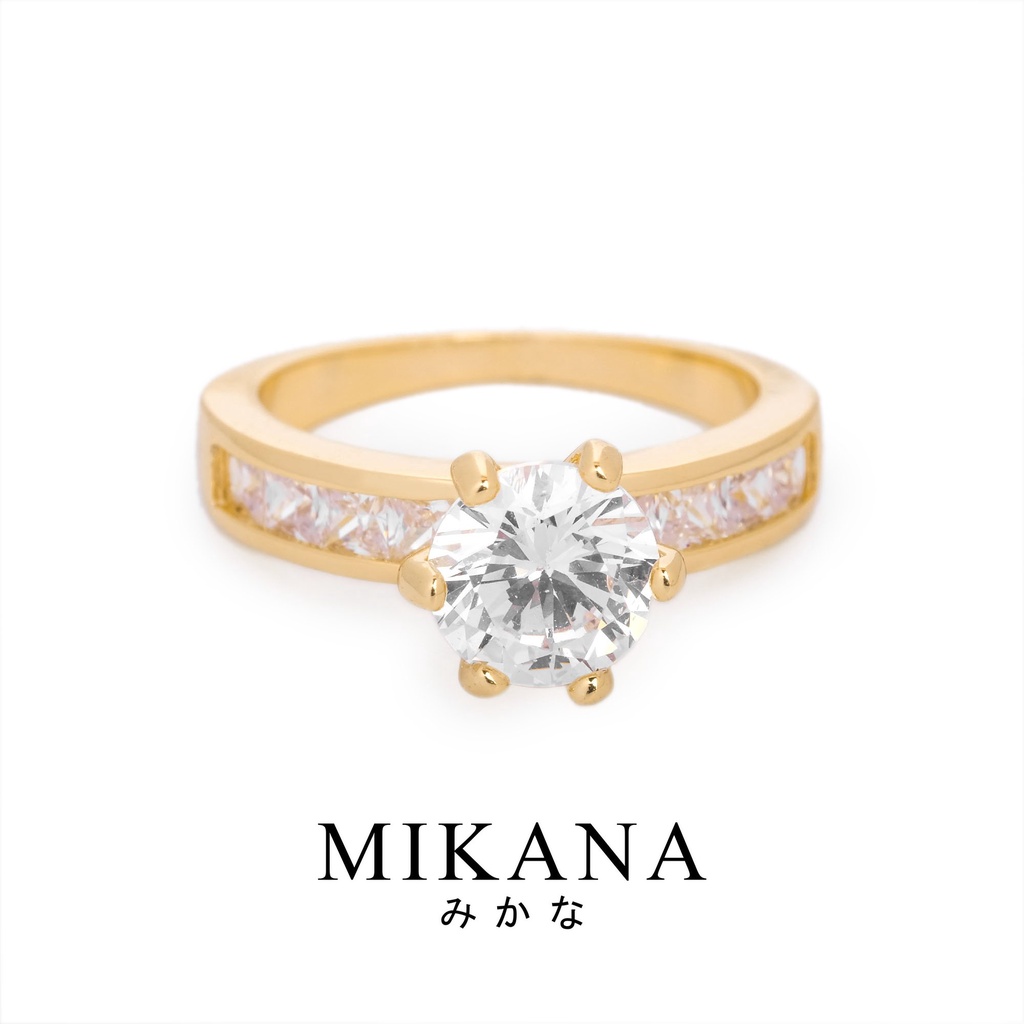The internet has been abuzz recently when a lady took to social media to voice her disappointment with the P299 (about USD 5) engagement ring she had received when her boyfriend of 8 years proposed to her.
Some people say that he could have at least tried harder. Eight years and an engagement is something extraordinary and should be represented by something of value. Someone even suggested that each day they were together should have counted to P1, so the ring should have been at least in the P2000 value.
On the other hand, people also said it’s not the ring that matters, and that the lady had been self-centred in her reaction. Some even mentioned being happily married for so many years and not having any engagement ring to show for it.
The guy who proposed also posted a statement, saying he had responsibilities and was thinking of allotting more towards the wedding ring. And that he was hurt by how she reacted.
While staunch supporters of both sides battle it out, one particular message stood out. Value can be subjective.
What’s an engagement ring worth?
In the world of engagements and weddings, few things spark as much debate as the cost and significance of an engagement ring. The question arises: should there be a set price tag for such a symbol of love and commitment?
And what if the ring in question is as modest as a P299 engagement ring? This topic delves into the intricate tapestry of love, expectations, and the subjective nature of value.
The Symbolism of the Ring

Firstly, it’s essential to understand why rings, particularly engagement rings, hold such significance. Traditionally, an engagement ring is a symbol of commitment, a tangible representation of one’s intention to marry.
For some, especially those whose love language is receiving gifts, the ring takes on an added layer of meaning.
In Dr. Gary Chapman’s theory of the Five Love Languages, receiving gifts is understood not merely as a materialistic craving but as a deep-seated need for the symbols of love. For these individuals, the value of the ring may not lie in its price but in the thought, effort, and intention behind it.
Expectations and Societal Norms
Society often sets high standards for engagement rings, with certain expectations about size, quality, and cost. These norms can create pressure to conform, leading couples to stretch their finances for a ring that meets societal approval.
However, it’s vital to challenge these norms and question whether they align with personal values and financial realities.
The Traditional Value Calculation of Engagement Rings
There’s a longstanding notion about the ‘appropriate’ cost of an engagement ring that has permeated societal expectations.
Traditionally, it was suggested that an engagement ring should cost the equivalent of several months’ salary.
This idea, often quoted as anywhere from one to three months’ salary, has been a benchmark for many when deciding on the price of the ring. This guideline, however, is a relatively modern invention, popularized in part by clever marketing campaigns from diamond companies in the mid-20th century.
The intention behind this ‘rule’ was to encourage spending on a significant and symbolic purchase, but it also set a somewhat arbitrary standard for measuring the value of one’s commitment. This standard can create unrealistic expectations and financial strain, especially in today’s diverse economic landscape.
The Impact of Traditional Valuation
Adhering to this traditional method of valuing an engagement ring can have several implications:
Financial Pressure
For many, spending several months’ salary on a ring is not feasible, and striving to do so can lead to financial stress or debt.
Shifting Priorities
Modern couples may prioritise other financial goals, such as saving for a home, travelling, or investing in experiences rather than expensive jewellery.
Personal Values
The worth of an engagement ring, for some, might be more about sentimentality and personal significance rather than monetary value.
Moving Beyond the Rule
As society evolves, so too does the approach to engagement rings. Many couples now reject the idea that a ring’s worth should be tied to a specific formula related to income. Instead, they focus on what feels right for their relationship and financial situation. The emphasis shifts to the symbolic nature of the ring as a representation of love and commitment, rather than its cost.
The Subjectivity of Value

The concept of value, especially in the context of engagement rings, is highly subjective. Psychological research into consumer behaviour suggests that perceived value is influenced by various factors, including personal experiences, cultural background, and individual beliefs.
A study in the “Journal of Consumer Research” highlights that emotional attachment to an item can significantly increase its perceived value, regardless of its monetary worth.
Would a P299 Ring Offend?
Returning to the initial question: would a P299 engagement ring be offensive?
The answer lies in the unique dynamics of each relationship. For couples who prioritize financial prudence or those who see beyond the material value of the ring, a modestly priced ring might be perfectly acceptable, even cherished.
For others, who perhaps view a more expensive ring as a symbol of sacrifice or commitment, a lower-priced ring might not meet their expectations.
I think it’s not the same answer for every couple.
Each one has their own unique story, financial background, love languages, preferences, and understanding of the world around them. While generally, you wouldn’t expect a cheap ring if your partner were a billionaire, it’s not as straightforward as the rest of us.
What’s concerning about this particular case is that after all these years, they both did not know each other well enough to determine that something like this could be fatal to the relationship.
What I’m offended about
After all that’s been said and done, I’m pretty disappointed as to how the named brand in all these hasn’t spoken up.
It doesn’t have to be anything controversial, they don’t even have to implicitly take a side (although we already know which one’s best for them). But at least they could have taken the opportunity to affirm the supporters of their brand and introduce themselves to a market that seems to espouse their brand values. Without even having to spend for an endorser.

They could have really endeared themselves to the masses and made a name as a beloved brand.
Conclusion
In the end, the conversation about the cost of an engagement ring opens up broader discussions about the meaning of commitment, the influence of societal norms, and the subjective nature of value.
It’s a personal decision that each couple must navigate based on their values, financial situation, and understanding of what the ring symbolizes in their relationship.
What matters most is the love and commitment the ring represents, not the price tag attached to it. As we navigate these waters, it’s crucial to communicate openly, respect each other’s perspectives, and remember that at the heart of the engagement ring is a promise of a shared future, a value that transcends any price tag.
Personally, I don’t think there’s anything wrong with an inexpensive ring. An engagement ring is meant to be used for the duration of the engagement (though I know some people like to stack it with the wedding ring too), so it’s kind of temporary in essence.
It doesn’t take anything from my value or the relationship I would have had. It’s when meanings are attached to the ring that it has the power to hurt, or even end a relationship.
What do you think?






No Comment